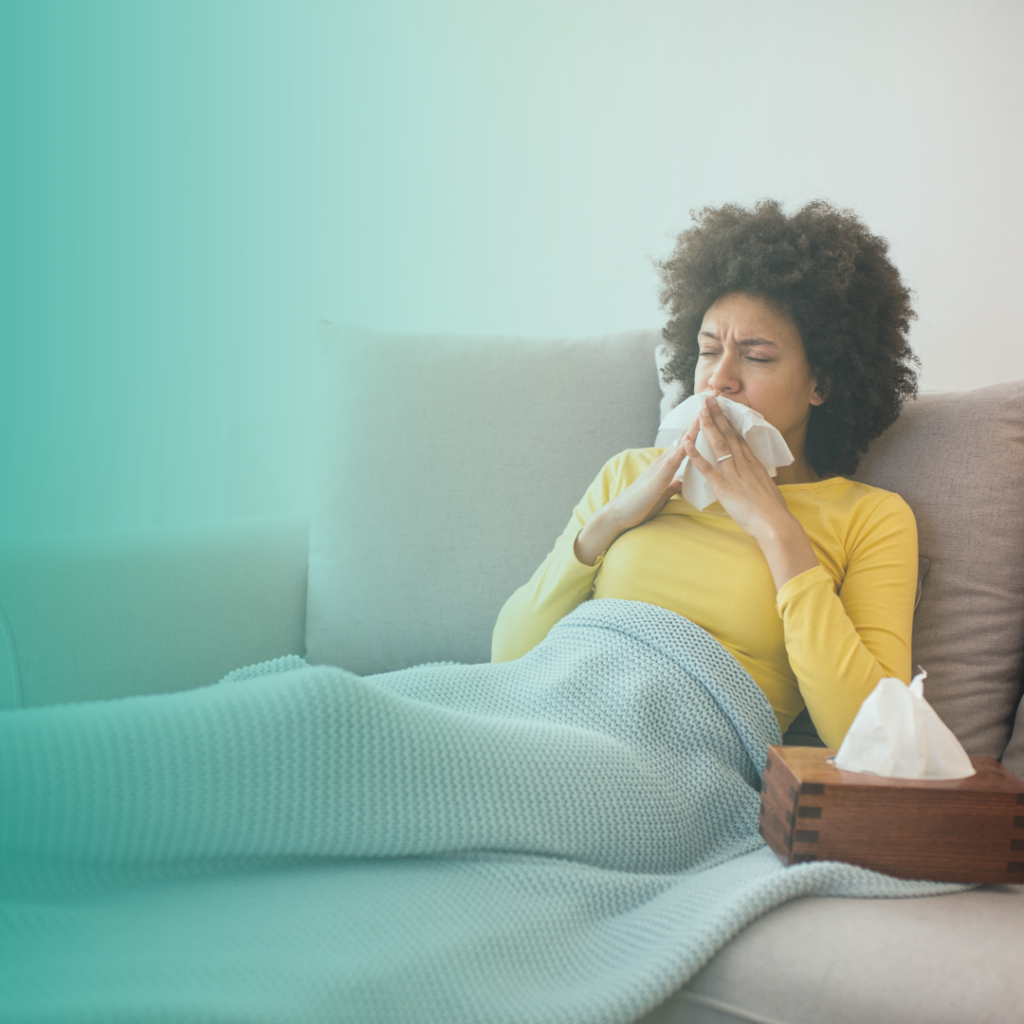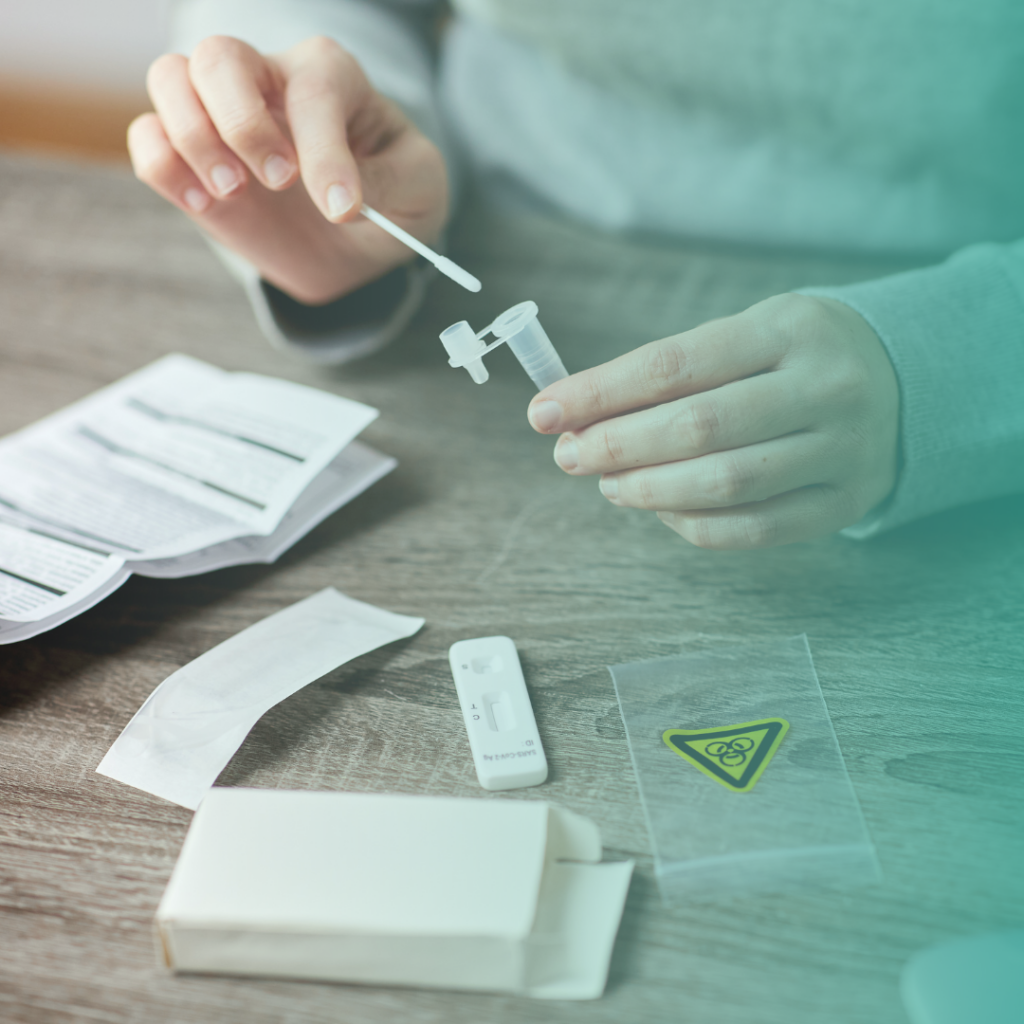
It’s officially fall! Crisp, cool weather, changing leaves and all the fun activities that make this season a fan favorite and a great time to be outdoors. It’s also the time of year when seasonal allergies and COVID-19 kick back into high gear. This month, we’re sharing information on distinguishing these two conditions and when it’s time to take action and see your doctor.
While allergies and COVID-19 can both cause respiratory symptoms, their origins and behaviors differ significantly. Allergies are typically caused by the immune system’s reaction to triggers such as pollen, dust or pet dander, with symptoms including:
- Sneezing
- Runny or stuffy nose
- Itchy or watery eyes
- Coughing (due to post-nasal drip)
- Itchy throat or ears

“COVID-19, especially milder infections, can mimic some features of allergies. However, fever/chills/sweats, body aches, fatigue, loss of taste/smell, chest pain/difficulty breathing, and nausea/diarrhea are suggestive of COVID-19,” says Dr. Ming Da Qu, Infectious Disease specialist at Southcoast Physicians Group. “High fever, change in mental status, difficulty breathing or chest pain should be evaluated by a medical professional.”
When to Test for COVID-19
According to Dr. Qu, testing for COVID-19 is suggested if you have distinguishing signs or symptoms or if you have a compromised immune system – for example, if you’ve had a stem cell transplant in the last two years, are on chronic steroid therapy or are receiving chemotherapy.
If you have COVID-19, talk to your healthcare provider about antiviral medications such as Paxlovid or Remdesivir to reduce progression to severe COVID-19 or hospitalization.

The Bottom Line
Although allergies and COVID-19 share some overlapping symptoms, key differences such as fever, loss of taste or smell and fatigue can help you distinguish between the two. If in doubt, testing for COVID-19 is recommended, especially if you’ve been exposed or symptoms deviate from your typical allergy patterns.
To prevent COVID-19, stay up to date with your booster shot each year, wear masks in high-risk settings and practice good hygiene such as handwashing. Avoid close contact with those who are ill, and practice social distancing in crowded areas. If you do get sick, remember to follow public health guidelines, including isolation and masking, to prevent spreading the virus to others. For the most up-to-date guidance, visit the CDC’s COVID-19 page.
Lastly, with cold, flu and COVID-19 season upon us again, it helps to know where to go for the most appropriate care for your particular condition. Emergency Departments will be busier than ever, and patients are seen based on the severity of their illness, so wait times may be longer than usual. Southcoast’s Urgent Care centers offer convenient online booking to reserve your place in line and cut down on wait times.
Wishing you good health,

 Matt Guthrie
Matt Guthrie 